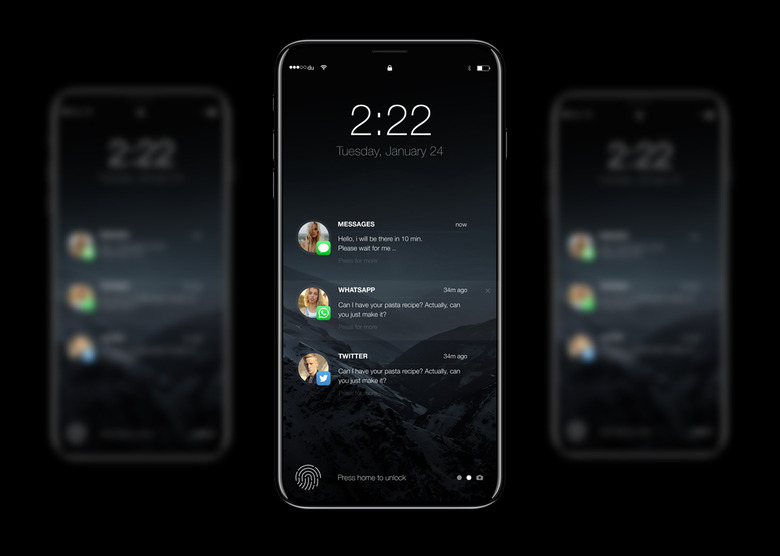Apple Doesn't Need Any Gimmicks To Help Sell Its $1,000 iPhone 8
Apple's upcoming iPhone 8 will certainly be the most expensive iPhone we've seen yet. And with good reason, Apple's next-gen iPhone will feature an advanced OLED display along with a full suite of advanced 3D sensors and cameras. While only Apple at this point knows how much the entry-level iPhone 8 is going to cost once it hits store shelves, many analysts are anticipating that the lower-tier model will cost about $1,000. As a quick point of comparison, the entry-level iPhone 7 Plus is priced at $769.
That said, Barclays analyst Mark Moskowitz believes that Apple should provide prospective iPhone 8 buyers with a few freebies in order to help boost sales. Specifically, Moskowitz believes that Apple can or should offset the iPhone 8's $1,000 price point by offering buyers a free annual subscription to Apple Music and 200GB of free iCloud storage for 12 months.
Still, adding Apple services may be a way to lure buyers to the higher-end offering. Moskowitz estimates the free one-year subscriptions of Music and iCloud, worth $120 and $36, will cost Apple $43 and $7 to service.
"Such a move could make a $1,000+ iPhone 8 seem more within reach, with the $156 in services serving as a quasi-discount or rebate," he said. More revenue could come if iPhone owners decide the renew the subscriptions after one year, he added.
At first glance, Moskowitz's proposal isn't all that crazy. After all, what user wouldn't enjoy receiving some nice Apple Music and iCloud perks with a new iPhone purchase? What's more, giving users a taste of Apple Music and iCloud could, as Moskowitz notes, turn them into recurring subscribers.
Still, Moskowitz's proposal falls flat for a few reasons.
For starters, Apple has never needed help convincing users to purchase a new iPhone model. Quite the contrary, demand for new iPhones has always been off the charts. So even though the iPhone 8 will be pricey, there's no reason to assume users won't flock to the device in droves, all the more so because the iPhone 8 represents the most drastic redesign to the iPhone form factor in years. Further, it's important to remember that Apple's entire business model is built around selling premium products at premium prices, which is to say that the iPhone 8's rumored price point isn't all that shocking given that it's Apple we're talking about.
Second, the idea of Apple bundling its services for free with a new iPhone 8 purchase is simply not something Apple would ever do because it's not in the company's DNA. Call Apple stingy or frugal if you will, but Apple simply isn't in the business of sacrificing profits to ostensibly boost hardware sales. Remember how long it took Apple to finally kill off its 16GB storage option? At the end of the day, Apple simply doesn't need any gimmicks to help boost demand for the iPhone 8.
